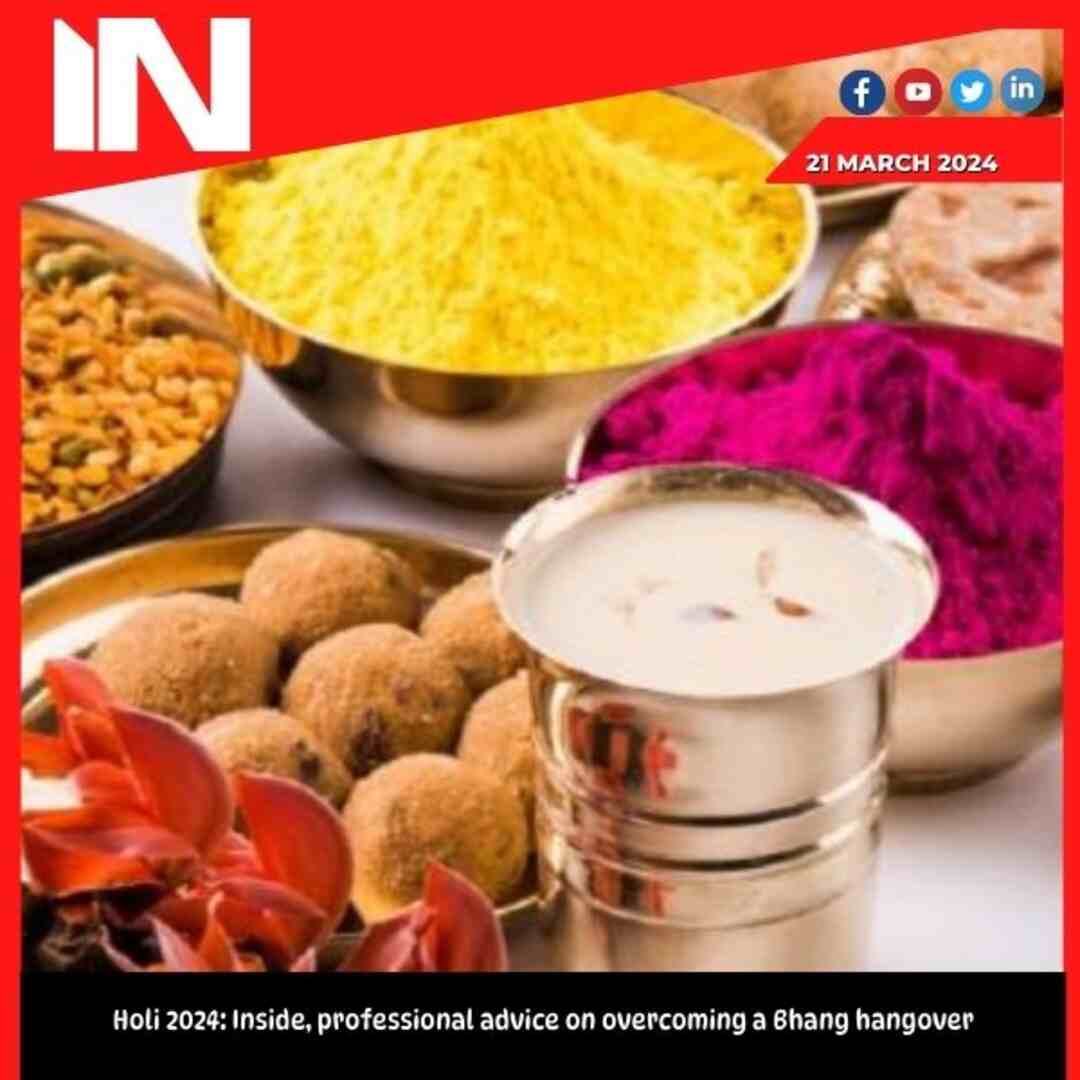health and remedies
Check out these Ayurvedic detox strategies to remove toxins from your body

Toxins enter our bodies through a variety of routes, including the food we eat, the air we breathe, and also through our skin; as a result, the goal of detoxification according to Ayurveda must focus on cleansing the organs responsible for elimination, including the gut, skin, lungs, and kidneys, as well as the liver, which serves as the human body’s carburetor and filters the food and air intake. There are many straightforward biohacking methods for detoxification, as well as numerous natural methods.
Dr. Manoj Kutteri, Medical Director and CEO of Atmantan Wellness Centre, stated in an interview with HT Lifestyle that “the various ways to detox our body are by following a proper diet regime consisting of foods that are high in fibre, Vitamin C, sulphur, antioxidants, probiotics, prebiotics, and hydrating in nature. We also need to consume less sugar and salt, as well as avoid prepackaged, refined, and processed foods. Additionally, hydration is crucial for triggering kidney function and removing all metabolites. The kidneys function better when you eat certain foods like celery, ash gourd, coconut water, wheatgrass, and watermelon, among others.
He continued, “Sweating techniques like dry and wet steam, infrared sauna, sunbathing, exfoliation practises, and aerobic exercises to improve skin functions can all help with skin detoxification. Numerous breathing techniques and pranayama techniques aid in cellular cleansing as well as the removal of impurities from the lungs. In addition to these, one must also engage in an emotional cleanse by putting all negative thoughts to rest and concentrating on positive ones. Fasting is a fantastic treatment option for a more thorough detox.
Sajeev Nair, the founder and chairman of Vieroots Wellness Solutions, elaborated on the subject by offering the following advice: “Intermittent fasting is one such thing which will help to clean up the dead cells or zombie cells. Another easy method is earthing, which involves walking barefoot on the ground. Our bodies are made up of minerals, but they hardly ever come into contact with the mother Earth, which is where all minerals come from.
Subah Saraf, co-founder of the Satvic Movement, insisted that we must make sure we do not fall short on the intake of healthy and vital nutrients and minerals. She claimed that by detoxifying one eliminates the bad and harmful elements from the body to improve health and maintain a healthy weight. She suggested:
1. Eat dinner early, before 7 o’clock (or 4-5 hours before bed), so that your body can utilise the food more effectively.
2. Drink detoxifying juices, such as vegetable juice (cucumber, ash gourd, etc.), preferably in the morning on an empty stomach. By detoxifying your body, you help the vital organs rid themselves of toxins and make it possible for the liver to excrete them in an effective manner.
3. Once a week, go liquid-only fasting. Liquid fasting can be done for a variety of reasons, including detoxification, weight loss, resting your digestive system, and health benefits. A clear liquid diet shouldn’t be followed for more than a few days because it can’t give you enough calories and nutrients.
Group Media Publications
Entertainment News Platforms – anyflix.in
Construction Infrastructure and Mining News Platform – https://cimreviews.com/
General News Platform – https://ihtlive.com/
Legal and Laws News Platforms – https://legalmatters.in/
Podcast Platforms – https://anyfm.in/
Trending
Holi 2024: Inside, professional advice on overcoming a Bhang hangover

Holi 2024: We are eagerly awaiting the arrival of this festival of colors, which is quickly approaching. Every year, the nation celebrates Holi with great fanfare and extravagance. Holi commemorates the eternal love and marriage of Goddess Radha and Lord Krishna. In addition, Holi commemorates Lord Vishnu’s victory over Hiranyakashipu, highlighting the idea that good always triumphs over evil. Holi will be celebrated on March 25 this year. Holika Dahan, also known as Chhoti Holi, is observed the day before Holi. On the day of Holi, many customs and rites are observed throughout India. The cities of Barnsana and Nandgaon celebrate Lathmar Holi, whereas Vrindavan celebrates Phoolwali Holi.
Holi 2024: Here are some professional suggestions to avoid Bhang hangover, ranging from eating a balanced diet to sipping herbal tea.
During Holi, a variety of snacks and beverages are made to be enjoyed with loved ones. The colorful, crispy, and delectable Holi snacks range from gujia to rasmalai to namakpare. Thandai, a delightful concoction of milk, spices, and sweets, is the queen of the drink table. Bhang is among the primary draws of Holi. For its euphoric impact, thandai is sometimes blended with powdered paste made from the female cannabis plant’s leaves and flowers. But after the first euphoria wears off, there’s also the inevitable hangover the following morning.
Methods for overcoming a hangover
Hydrate the body: Hydration is crucial for managing a hangover caused by Bhang during Holi. Sip on lots of water to flush out toxins and replenish your body’s moisture.
Consume coconut water: Coconut water and other electrolyte-rich beverages can help replenish lost nutrients.
A balanced diet: blood sugar regulation and nausea reduction can be achieved by eating a well-balanced meal high in carbohydrates, proteins, and healthy fats.
Herbal teas and rest: Herbal teas with relaxing properties, such as peppermint or ginger, can ease stomach discomfort. Your body can mend itself by resting in a quiet, dark environment.
Limit alcohol intake: Limit your alcohol and cannabis intake to prevent symptoms from getting worse. As soon as symptoms develop or continue, get medical help.
Group Media Publications
Entertainment News Platforms – anyflix.in
Construction Infrastructure and Mining News Platform – https://cimreviews.com/
General News Platform – https://ihtlive.com/
Podcast Platforms – https://anyfm.in
-

 Web Series1 month ago
Web Series1 month agoSpoilers for Star Wars: The Acolyte, episode three: The new episode has caused the internet to go crazy.
-

 Music2 months ago
Music2 months agoDalton Gomez, Ariana Grande’s ex, makes his Instagram debut alongside his new partner Maika Monroe.
-

 Music2 months ago
Music2 months agoMin Hee-jin will continue to serve as ADOR’s CEO, and following the shareholders’ meeting, HYBE names three new board members.
-

 Entertainment2 months ago
Entertainment2 months agoSawa Pontyjska, a Ukrainian model, is suing the Cannes Film Festival organisers, alleging that a security guard assaulted her on the red carpet.
-

 Hollywood1 month ago
Hollywood1 month agoDeadpool and Wolverine might shatter box office records, which would be unprecedented for an R-rated film.
-

 Entertainment2 months ago
Entertainment2 months agoKai Cenat, a Twitch celebrity, travels to Taiwan for this poignant occasion.
-

 Music1 month ago
Music1 month agoBianca Censori’s obscene Tokyo ensemble provokes indignation in Japan. while Kanye West flies economy after losing…
-

 Hollywood2 months ago
Hollywood2 months agoMovie Review: ‘Am I OK?’ is a charming comedy about friendship that features Dakota Johnson’s endearing genuineness.
















